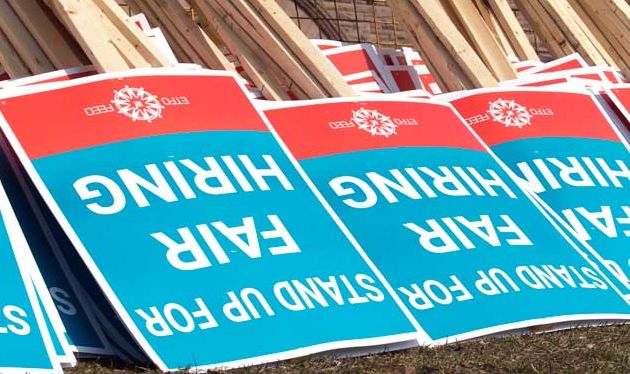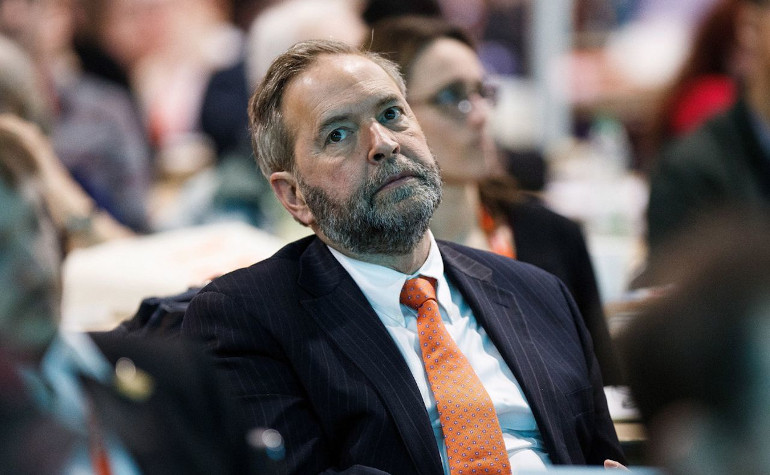The Ford government in Ontario, using the COVID-19 crisis as an excuse, has launched an attack on the principle of union seniority as it pertains to the hiring of new teachers. The seniority principle, often simplified to “last in, first out” has been incorporated into the language of union collective agreements going back to the 1920s. Most often, seniority relates to job postings, overtime, and layoffs. Historically, in teaching, the union seniority list comes into play when teacher layoffs are on the table. This time, it’s not firing but hiring that is the issue.
Prior to 2012, school Principals had complete discretion as to new hires. They could hire bright eyed newbies from the Faculty of Education or they could choose from people on the occasional teachers’ list (i.e.supply teachers).This system was open to abuse with the charge of nepotism being the most commonly made– a principal overlooks experienced and qualified supply teacher in favour of the just graduated niece/nephew. In the 2012 contract negotiations between government and unions, the former agreed to Regulation 274 which essentially conceded the union position on seniority.The regulation required principals to hire only from among the five applicants with the most seniority as long-term supply teachers, provided they had the necessary academic qualifications for the job.
Regulation 274 was controversial at the time and it has remained so, allegedly for depriving younger graduates/teachers from gaining experience and for entrenching union power. The hiring rule “rewards union seniority over one’s merit,” said Education Minister Lecce. “This is about giving principals more flexibility to hire the very best teaching staff. Merit will lead hiring in our schools. For nearly a decade, Ontario has hired educators based on seniority and that did not serve our students well. In fact, it undermined the quality of teaching in many cases.” Lecce has couched the repeal of the regulation as an effort to pursue diversity in hiring, implying that the repeal would benefit racialized groups. See the chart below for a rebuttal of this.
Answering these claims, the following, “Myth vs Reality” comes from the elementary teachers’ union,ETFO.
“The Minister of Education helped create the current crisis in Ontario education and now he is spinning myths about hiring to drive through a Conservative agenda. Get the facts on hiring in public schools. Read what independent researchers hired by Ministry of Education said.
Myth vs Reality
Regulation 274
In 2013 Ontario’s Ministry of Education asked independent researchers to examine the impact of Regulation 274 on school board hiring. The researchers’ report dispelled many myths about the regulation.
Here’s What the Researchers Found:
| Myth | Reality |
| Regulation 274 forces principals to hire unqualified occasional teachers. | There were NO instances of occasional teachers being hired for positions they weren’t qualified for. |
| Regulation 274 interferes with school board policies to increase teacher diversity. | Regulation 274 had NO impact on hiring for diversity. Because it brings fairness to the hiring process, the regulation is actually consistent with diversity objectives in employment. |
| Regulation 274’s hiring process based on qualifications and seniority is unfair to new graduates. | The transparency Regulation 274 brings to hiring, when properly implemented by school boards, makes the path to permanent employment clear to everyone, including new graduates. |
| Experienced occasional teachers are less effective in the classroom than new graduates. | The researchers noted that “research about teacher effectiveness shows that teaching experience matters – all other things being equal, teachers with more experience are better teachers.” |
Shamelessly, Ford and Lecce claim that the regulation hampered schools in filling jobs created by COVID-19 changes. The reality is that the main problem getting in the way of hiring new teachers was the absence of sufficient funding from the government.
Back in July, the government announced $309 million to provide PPE including medical masks to all staff, including occasional and supply teachers. As part of the investment, $75 million would go toward hiring 1,200 custodians and the added costs of cleaning schools. The spending would also fund health and safety training for all educators. Some $50 million would be used to help hire 500 public health nurses to be assigned to schools to allow for surveillance testing and treatment of students. Only$80 million would be available for additional staffing based on the needs of school boards.
The government also announced it would increase investments in special education, providing $10 million to hire more educational assistants and specialized equipment. Another $10 million is to be provided for mental health supports for students.
Lecce said at the time, “We will do whatever it takes to keep your child and our staff safe in this province.” Everything, apart from investing the money to hire enough teachers to make schools safe. Most estimates of the cost of a safe reopening put costs at several billion to hire enough teachers, nurses, support staff and custodians as well as provide PPE, plexiglass, open-up more classrooms and more.
Then in August, as the return to school was being prepared, the government upped funding for school boards’ COVID costs – partly as a result of teacher unions putting pressure on the province to address their back-to-class concerns.
They announced $50 million for school ventilation systems and $18 million in supports for online learning. The boards would also be allowed to dip into their reserves to hire extra staff or find extra space for smaller classes. They would be able to access about two percent of these funds, freeing up about $500 million, with the government filling in the $11 million gap faced by a handful of boards that no longer had any reserves. In other words, that $11 million was the only new money the government was coming up with for the hiring of new teachers. Woefully inadequate.
Teachers are trying to keep themselves, their students and their families safe during a soaring wave of COVID. The Ford government has decided to raise Regulation 274 to distract from its incompetence in handling the return to school over the last month. It serves as an added bonus, from their standpoint, to be able to mix in some traditional anti-union rhetoric. The unionsneed to protect the interests of long-term occasional teachers. Resisting nepotism and the divine right of management to hire who they want is equally important.




